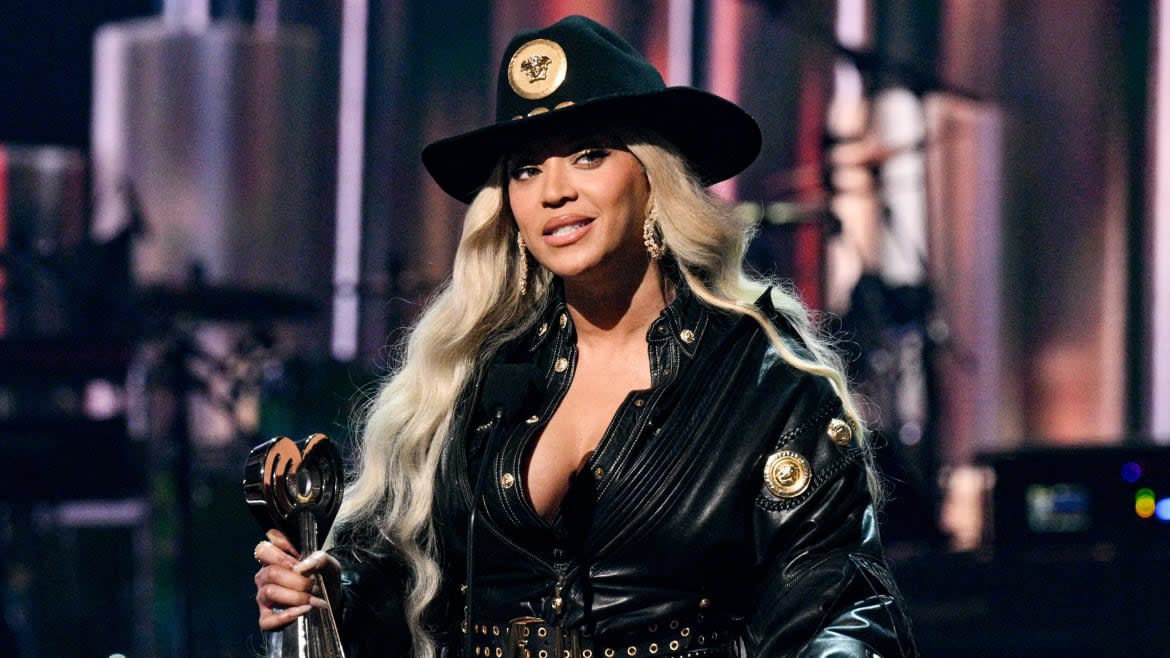Beyoncé’s Latest Lawsuit Claims She Stole Lyrics for ‘Break My Soul’

Beyoncé is still riding high off the release of her country-inspired album Cowboy Carter, but this week, she was hit with a copyright infringement lawsuit that may put a damper on her summer.
The superstar has been accused of using a sample in “Break My Soul”—the lead single off 2022’s Renaissance—that allegedly infringes upon the copyright of a 2002 track by Da Showstoppaz called “Release a Wiggle.”
“Break My Soul” interpolates the song “Explode” by New Orleans artist Big Freedia, who is also named in the lawsuit. The suit was filed by the original members of Da Showstoppaz, who say that Big Freedia’s song, which was then interpolated into Beyoncé’s song, used their “unique and distinctive lyrics and musical composition” without permission.
The lyrics at question here are slight variations on the phrase “release your wiggle.” The plaintiffs are asking for royalties and credits on “Break My Soul.”
How far this lawsuit manages to travel within the system is entirely dependent on the veracity of its claims, but this is hardly the first time Beyoncé’s music has come under legal fire.
In 2016, in a similar case to “Break My Soul,” Beyoncé was sued over “Formation,” the lead single from her album Lemonade. The lawsuit was filed by family members of the New Orleans bounce star Messy Mya, whose spoken line “I like that” can be heard in the video for the Beyoncé song.
Mya’s family argued in their lawsuit that Mya’s words were used to “create the tone, mood, setting and location of the New Orleans-themed ‘Formation’ video and audio recordings,” and that Mya “has received nothing—no acknowledgment, no credit, no remuneration of any kind.”
According to the New Orleans Advocate, the $20 million Messy Mya lawsuit was dismissed a year later, but court records also showed that the case reached an undisclosed settlement with both parties.
Ultimately, copyright infringement suits like these are old hat for Beyoncé, who has been accused of sampling without permission on other occasions.
A couple of times, Beyoncé has run afoul of choreographers: Anne Teresa De Keersmaeker was so angry over the “Countdown” music video’s “plagiarism” (her words) of 1990’s “Achterland” and 1983’s “Rosas danst Rosas” that Beyoncé ended up having to release a mollifying statement: “I’ve always been fascinated by the way contemporary art uses different elements and references to produce something unique.”
In Defense of Beyoncé’s Transformative Dolly Parton Cover
And in 2020, Beyoncé and Jay-Z were sued by the Jamaican choreographer L’Antoinette Stines, who alleged that the power couple did not properly credit her contributions to the song “Black Effect” from their album Everything Is Love. Stines said that she was asked by Jay-Z and Beyoncé to personally speak about her thoughts on love for use in a promotional video only, and that she was shocked to hear her uncredited voice in “Black Effect.” In the lawsuit, Stines said that she felt “artistically raped” by the experience.
Furthermore, in 2014, Beyoncé, Jay Z, and producer Timbaland were sued by the Hungarian singer Mitsou, who alleged that the pop hitmakers used her “Bajba, Bajba Pelem” at the start of the Beyoncé smash “Drunk in Love” without Mitsou’s permission.
Songwriter Jennifer Armour also argued that Beyoncé’s “Baby Boy” bore many glaring similarities to Armour’s own “Got a Little Bit of Love for You.” That suit was dismissed by a federal judge in 2006 after the court found that the two songs were “substantially dissimilar.”
“It’s unfortunate that lawsuits such as this one occur, but I am grateful and relieved to have this behind me and I am eager to move on,” Beyoncé said in a statement at the time. If only she knew what was to come!
Get the Daily Beast's biggest scoops and scandals delivered right to your inbox. Sign up now.
Stay informed and gain unlimited access to the Daily Beast's unmatched reporting. Subscribe now.

